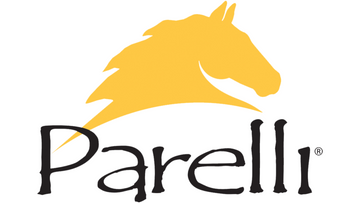Horse Careers: Can You Turn Your Passion into Purpose?
bis Parelli Natural Horsemanship auf Aug 10, 2022

It’s a dream for many horse people to turn their passion for horses into a paying career. Unfortunately, the world of horse careers can feel a bit intimidating and overwhelming. With high costs and lots of competition, it is wise to research your proposed equine careers thoroughly before starting on the career path.
Here’s a list of careers in the horse industry you should consider:
- Equine Chiropractor
- Equine Massage Therapist
- Farrier
- Horse Trainer/Instructor
- Mounted Police Officer
- Equine Photographer
- Broodmare or Stallion Manager
Equine Chiropractor
Equine chiropractors are specially trained professionals who work on the horse’s musculoskeletal system, including bones, joints, and connective tissue. Chiropractic work has been gaining popularity in the equine industry because it is a natural way for a horse owner to solve many pain and performance issues in their horses. Horse’s often become misaligned, and chiropractors can put them back into alignment with a single adjustment at the barn or horse show.
Regulations and requirements for becoming an equine chiropractor vary from state to state. Most equine chiropractors must be licensed human chiropractors or veterinarians before qualifying for specialty equine chiropractic schooling. This means you will spend a lot of time in school learning about equine health and horse care. This isn't an equine job you start overnight.
Equine Massage Therapist
Equine massage therapists work on the horse’s muscular system rather than the musculoskeletal system worked on by chiropractors. Just as the demand for chiropractors has risen, so has the demand for equine massage therapists. During riding, training, or even breeding, horses get sore, and massage is an excellent way to release muscle tension and increase blood flow and circulation.
You must undergo an accredited equine program certification to become an equine massage therapist. Different states oversee massage therapists to varying degrees. Make sure to check your state laws to ensure you are compiling with their requirements.
Farrier
Farriers maintain horses’ hooves. There are two general styles of trimming for farriers; barefoot and traditional. Traditional farriers maintain balance with trims and shoes. Barefoot farriers trim hooves every few weeks and work to preserve the natural strength of the hoof without shoes. Since horses need their hooves trimmed every 4-8 weeks, this is a high-demand job.
Farriers should go through an accredited farrier school or work as an apprentice to an experienced farrier. Balancing horse hooves and corrective shoeing takes skills and experience learned over many years.
Horse Trainer/Instructor
Horse trainers and instructors work with different horses and riders to improve their skills, relationship, and problem solves challenging areas. There are many types of horse trainers/instructors; traveling clinicians, local trainers, specialty trainers for specific disciplines or young horses, competitive trainers, etc. Training horses and riders takes years of experience and instruction. If this is your chosen career path, you will likely be a lifelong learner in the horse industry as you continue to hone your skills.
Because of the many horse trainers and instructor types, there are many paths to start and succeed in this equine career. There are two ratings for Parelli Professionals; Instructors and Horse Development Specialists. Our Natural Horsemanship instructors take lessons, workshops, and clinics to support and accelerate what they learn in the Parelli Levels Program curriculum.
All Parelli Professionals must meet the professional requirements set by Pat Parelli and his team, attend professional conferences, and are required to take Continued Education classes.
If you are interested in pursuing a horse career with Parelli Natural Horsemanship, visit our course calendar for a course near you.
Mounted Police Officer
If you are looking for an equine career a bit outside the box, consider becoming a mounted police officer. Many police departments in larger cities use mounted police officers in parks and events. Mounted police are also used for crowd control and search and rescue missions in remote locations.
A mounted police officer has the same duties as a traditional police officer. If you want to pursue this horse career, you must meet all the state requirements for becoming a police officer, join a department, and wait several years before being allowed to apply for the equine program.
Equine Photographer
Equine photographers have an incredible eye for capturing balanced, exciting images of horses. They are photography experts with an understanding of using various lenses and proper lighting to show the best features of a horse. Equine photographers are often seen at horse shows and major events. However, they also schedule equine photo shoots at barns for sale horses, breeding horses, and offspring.
To become an equine photographer, you need to complete courses or apprentice with a professional equine photographer. Many equine photographers are self-taught using the knowledge they gained as equestrians.
Broodmare or Stallion Manager
Breeding farms employ a variety of equine breeding specialists. While there are many positions available at breeding operations, Broodmare managers and Stallion managers are two of the most popular. Broodmare managers oversee pregnant mares and foals' care, management, and health. They have extensive knowledge of equine reproduction, foaling, and post-foaling care. This can be a gratifying job but plan to be on call through the foaling season to oversee and assist with any problematic births. Broodmare managers also work closely with Stallion Managers, veterinarians, and other barns.
Similarly, Stallion managers are responsible for caring for and managing any breeding stallions on the farm. They will participate in breedings, collections, and health care for the stallions. Stallion managers also help communicate with mare owners and coordinate mares coming to the farm for breeding. As expected, stallion managers will be very busy during the breeding season, with up to four live breedings or collections done each day.
You can learn these positions by working at a breeding farm or completing equine reproductive schooling. Horse handling is critical in this role, and understanding how to handle a mare and stallion during breeding safely is a must. Broodmare managers must also understand how to handle mares and foals, especially when the mare is protective.





